Filter by
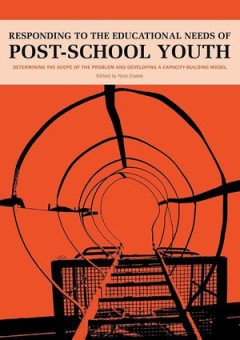
Responding to the Educational Needs of Post-School Youth : Determining the Sc…
he research reflected in this volume indicates that in South Africa there are almost three million youth between the ages of 18 and 24 who are not in education, training or employment – a situation which points not only to a grave wastage of talent, but also to the possibility of serious social disruption. The authors in this work paint a picture of the enormous reservoir of human talent whic…
- Edition
- -
- ISBN/ISSN
- 9781920355272
- Collation
- -
- Series Title
- -
- Call Number
- 370 RES
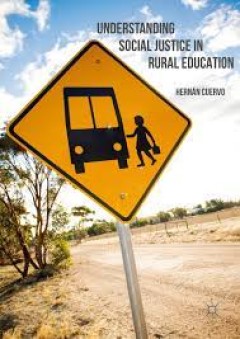
Understanding Social Justice in Rural Education
This book explores what social justice looks like for rural schools in Australia. The author challenges the consensus that sees the distribution of resources as the panacea for the myriad challenges faced by rural schools and argues that the solution to inequality and injustice in rural settings has to take into account other important dimensions of social justice such as recognition and associ…
- Edition
- -
- ISBN/ISSN
- 978-1-137-50515-6
- Collation
- -
- Series Title
- -
- Call Number
- -
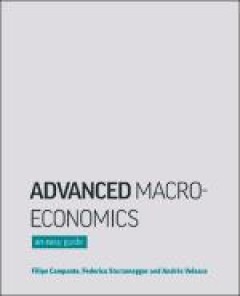
Advanced Macroeconomics: An Easy Guide
Macroeconomic policy is one of the most important policy domains, and the tools of macroeconomics are among the most valuable for policy makers. Yet there has been, up to now, a wide gulf between the level at which macroeconomics is taught at the undergraduate level and the level at which it is practiced. At the same time, doctoral-level textbooks are usually not targeted at a policy audience, …
- Edition
- -
- ISBN/ISSN
- 9781909890695
- Collation
- -
- Series Title
- -
- Call Number
- -

Redesigning Life: Eugenics Biopolitics and the Challenge of the Techno-Human …
The emerging development of genetic enhancement technologies has recently become the focus of a public and philosophical debate between proponents and opponents of a liberal eugenics – that is, the use of these technologies without any overall direction or governmental control. Inspired by Foucault’s, Agamben’s and Esposito’s writings about biopower and biopolitics, the author sees both…
- Edition
- Ed. 1
- ISBN/ISSN
- 9783035265446
- Collation
- -
- Series Title
- -
- Call Number
- 100 VAN r
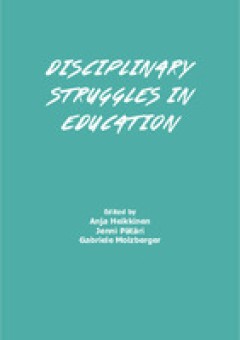
Disciplinary Struggles in Education
This book discusses disciplinary struggles in education from three perspectives. The chapters in the first section analyse the disciplinary character of educational practice and institutions. The second section focuses on justification of educational knowledge in transmission between theory and practice. The contributions of the third section problematise the aims and functions of educational p…
- Edition
- Ed. 1
- ISBN/ISSN
- -
- Collation
- 262
- Series Title
- -
- Call Number
- 374 HEI d

Cow Care in Hindu Animal Ethics
This open access book provides both a broad perspective and a focused examination of cow care as a subject of widespread ethical concern in India, and increasingly in other parts of the world. In the face of what has persisted as a highly charged political issue over cow protection in India, intellectual space must be made to bring the wealth of Indian traditional ethical discourse to bear on t…
- Edition
- Ed. 1
- ISBN/ISSN
- -
- Collation
- 269
- Series Title
- The Palgrave Macmillan Animal Ethics Series
- Call Number
- 320 VAL c
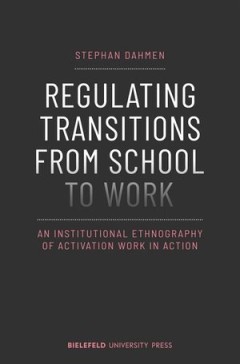
Regulating Transitions from School to Work : An Institutional Ethnography of …
How are activation programs for the young unemployed implemented? How do street-level bureaucrats deal with competing rationalities and demands for action? Transition policies increasingly aim at promoting self-regulation and constructing employable subjects. Stephan Dahmen explores the practical regulation of biographical transitions in activation programs for the young unemployed by focusing …
- Edition
- -
- ISBN/ISSN
- 9783839457061
- Collation
- -
- Series Title
- -
- Call Number
- 100 DAH r

Key Concepts in Philosophy An Introduction
The book provides an introduction to six fundamental philosophy concepts - philosophy, language, knowledge, truth, being and good. At the same time, it aims to initiate its readers into the process of philosophical thinking. The book is addressed to students and laypeople, but also contains new ideas for specialists. It is written in a clear, accessible and engaging style, and its author "share…
- Edition
- -
- ISBN/ISSN
- 9783896656483
- Collation
- -
- Series Title
- -
- Call Number
- -

Teaching to Transform Urban Schools and Communities : Powerful Pedagogy in Pr…
For preservice candidates and novice teachers facing the challenges of feeling underprepared to teach in urban schools, this book offers a framework for conceptualizing, planning, and engaging in powerful teaching. Veteran teacher educator Etta Ruth Hollins builds on previous work to focus on transformative practices that emphasize the purpose and process of teaching. These practices are design…
- Edition
- -
- ISBN/ISSN
- 9781351863254
- Collation
- 162 halaman
- Series Title
- -
- Call Number
- 370 HOL t
Tolerance: The Beacon of the Enlightenment
This anthology, inspired by Voltaire’s advice that a text needed to be concise to have real influence, contains firey extracts from forty different authors, from the philosophers everyone’s heard of to those whose brilliant writings are less well-known. They are immensely diverse in style and topic, but all have in common their passionate commitment to equality, freedom, and tolerance, and …
- Edition
- -
- ISBN/ISSN
- 9781783742035
- Collation
- -
- Series Title
- -
- Call Number
- -
 Computer Science, Information & General Works
Computer Science, Information & General Works  Philosophy & Psychology
Philosophy & Psychology  Religion
Religion  Social Sciences
Social Sciences  Language
Language  Pure Science
Pure Science  Applied Sciences
Applied Sciences  Art & Recreation
Art & Recreation  Literature
Literature  History & Geography
History & Geography